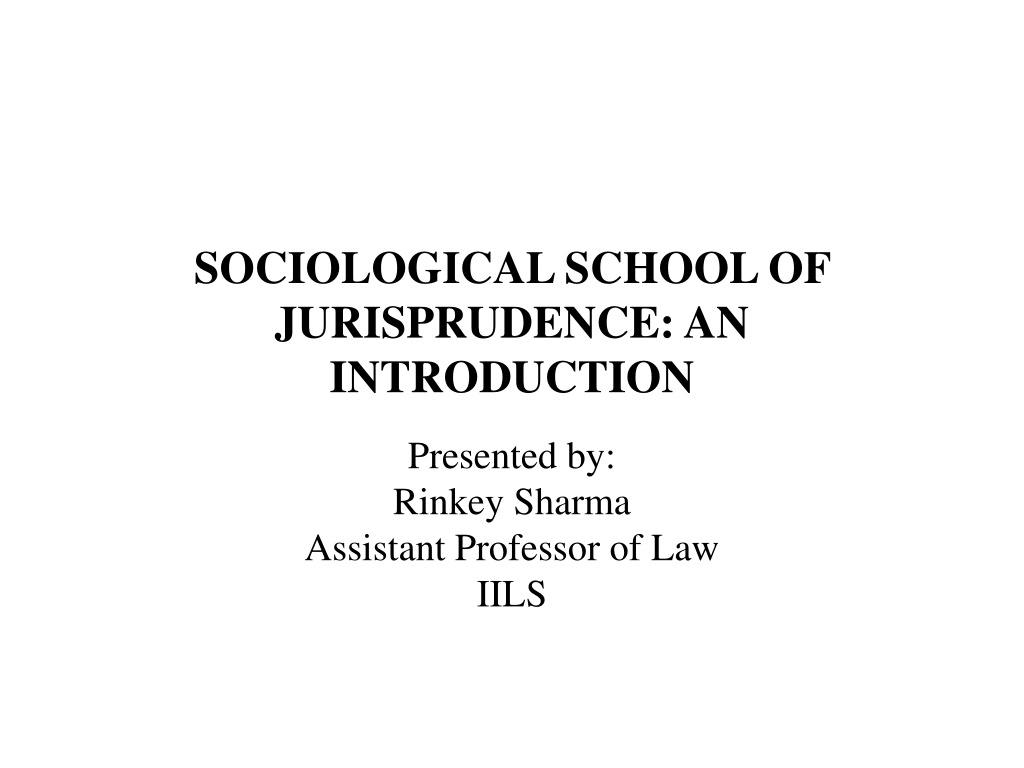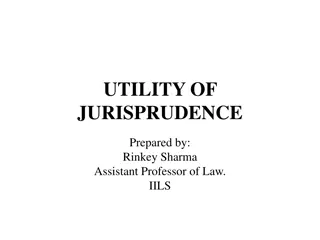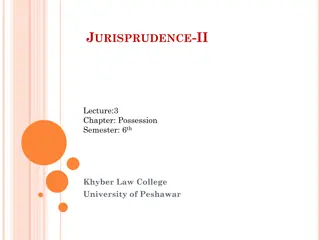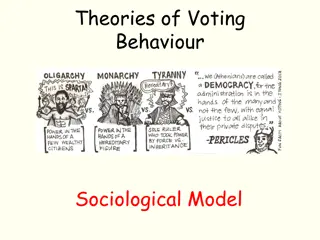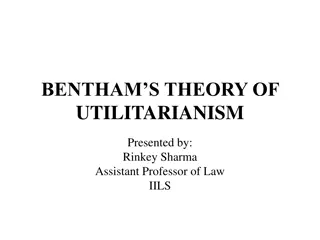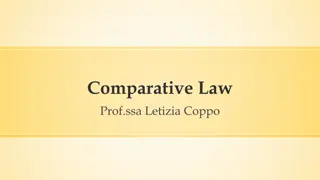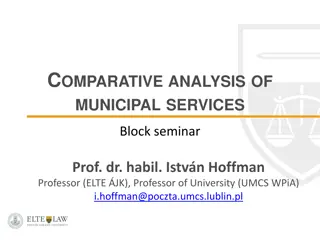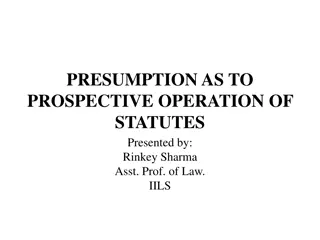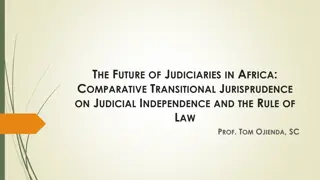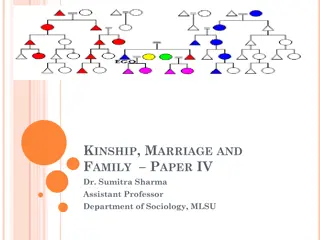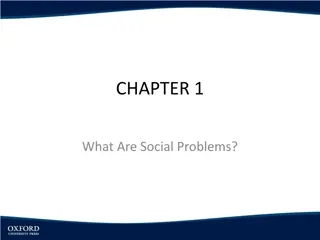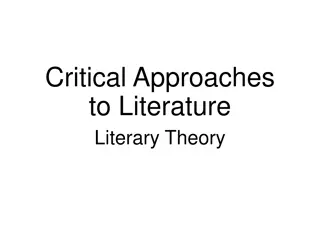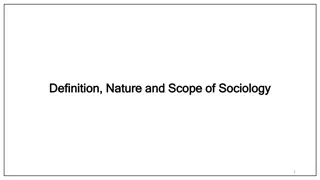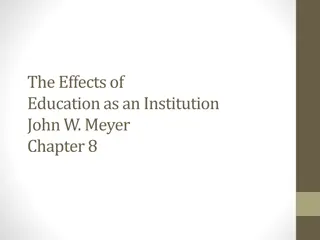Sociological School of Jurisprudence: An Introduction
Sociology studies human relations within society while jurisprudence focuses on law. The Sociological School of Jurisprudence emphasizes the interconnection between law and society. It emerged in response to the doctrine of Laissez Faire during the Industrial Revolution, advocating for a balance between individual and societal interests. Influential jurists like Montesquieu, Duguit, and Roscoe Pound supported this school of thought.
Download Presentation

Please find below an Image/Link to download the presentation.
The content on the website is provided AS IS for your information and personal use only. It may not be sold, licensed, or shared on other websites without obtaining consent from the author. Download presentation by click this link. If you encounter any issues during the download, it is possible that the publisher has removed the file from their server.
E N D
Presentation Transcript
SOCIOLOGICAL SCHOOL OF JURISPRUDENCE: AN INTRODUCTION Presented by: Rinkey Sharma Assistant Professor of Law IILS
INTRODUCTION Sociology is the study of human relations, interactions inside a society and jurisprudence, on the other hand, is the study of law. The reason why we explained these two fields is because, although they are different but are interlinked and depends on each other. Sociological school of jurisprudence is a school of thought that firmly believes that law and society are interlinked and the law impacts the society at large. If there is a change in the society then that will directly or indirectly affect the law or the legal system and vice versa.
BACKGROUND All the credits for the emergence of this school of thought go to the doctrine of Laissez Faire that means minimum interference of the state in the economic activities of the individual. This was most common during the Industrial revolution when this idea of trade was introduced. The basic aim of this principle is to promote free trade among various global traders without any interference of the Government and this idea of Capitalism only supported the individual interests and not an interest of the whole society, and this could lead to a situation where the gap or the divide between the rich and the poor is so wide and the concentration of all resources are only with the few people of the society.
This government to interfere during any conflicts or during any situation where an individual was forced against his/her will and not in other circumstance. Thus, this principle only supported a few people in the society and the majority of the population s interest was unheard and neglected. This principle was adopted by many nations and due to which the society was divided into: 1. Haves or the Bourgeoisie 2. Have nots or the Proletariat. The phrase, The rich get richer and the poor get poorer , was a live example during that time. idea of Capitalism only allowed the
During this time, few jurists who believed that this gap between the rich and the poor might bring a clash and would introduce certain other social problems in the society, these group of men reacted to this economical unrest and due to which the Sociological School of Jurisprudence emerged opposing the ideology of Laissez Faire and believed in maintaining harmony by balancing both the State and the individual interest in the society that was being neglected before that. The sociological school gained dominance in the first decade of the 20thCentury. Main exponents: Monstesquieu, Duguit, Ehrlich, Roscoe Pound, Ihering. Auguste Comte,
FEATURES OF SOCIOLOGICAL SCHOOL The Sociological school of Jurisprudence advocates that the Law and society are related to each other. This school argues that the law is a social phenomenon because it has a major impact on society. The main feature of Sociological school of law: 1. Sociological School of Law emphasis more on the functional aspect of law rather than its abstract content. 2. They consider law as a social institution essentially interlinked with other disciplines bearing direct impact on the society and uphold the view that law is designed on the basis of human experience in order to meet the needs of the society. 3. Sociological School of Law completely neglects positivism i.e. the command of sovereign and also historical jurisprudence.
